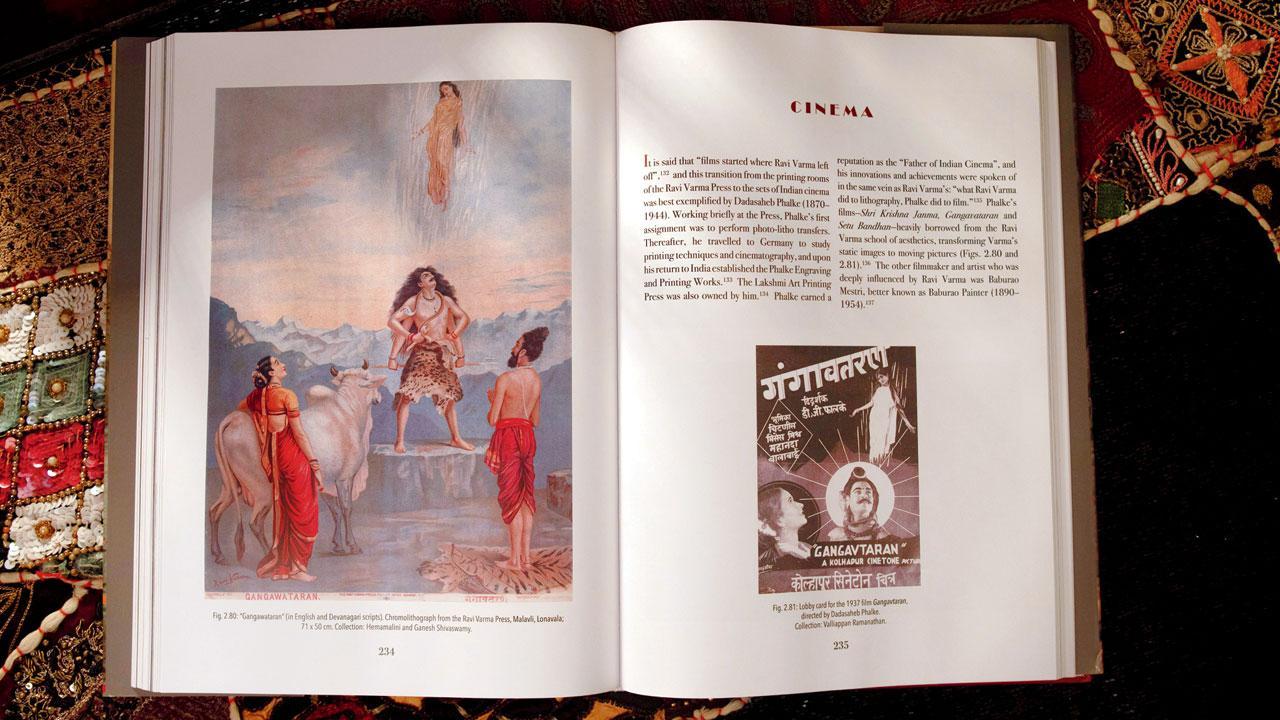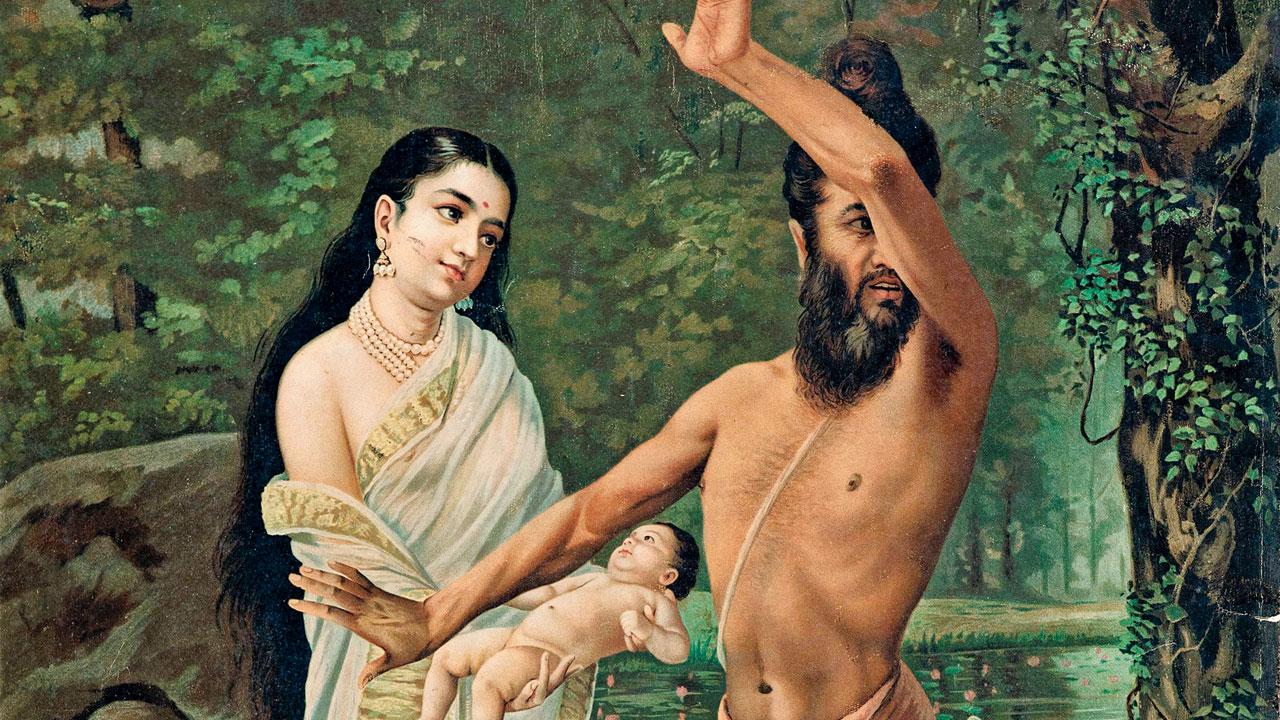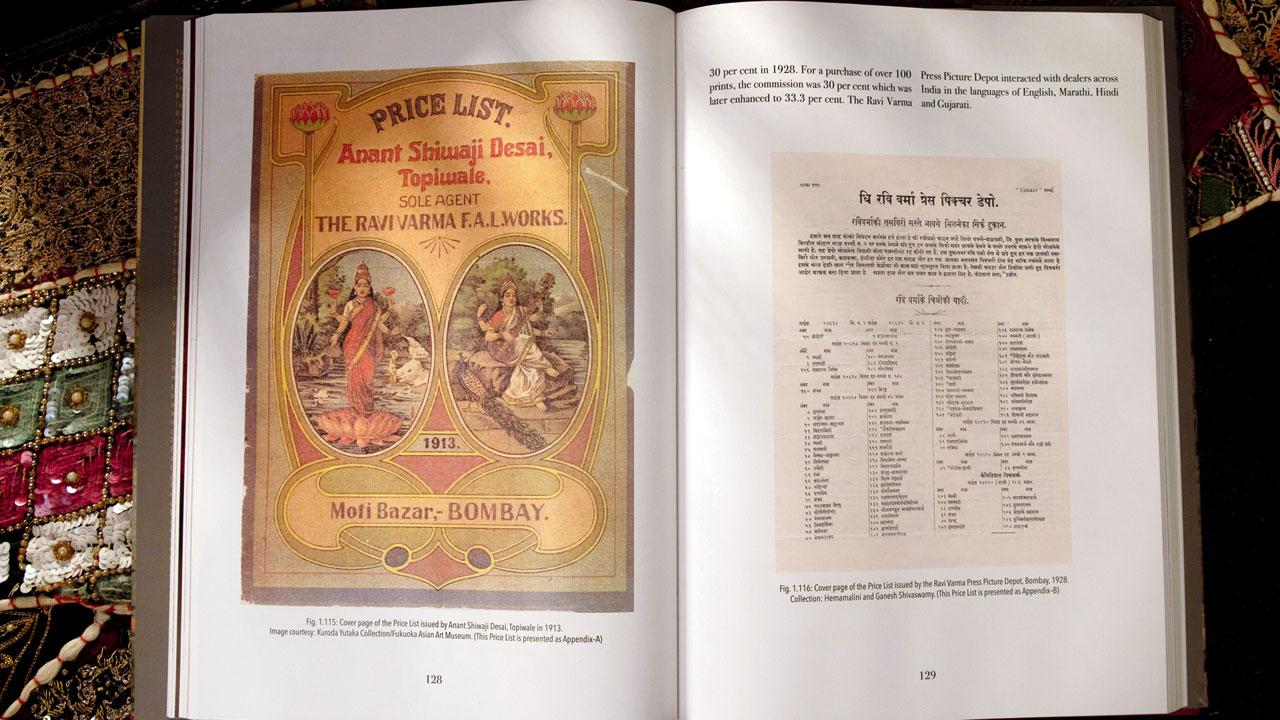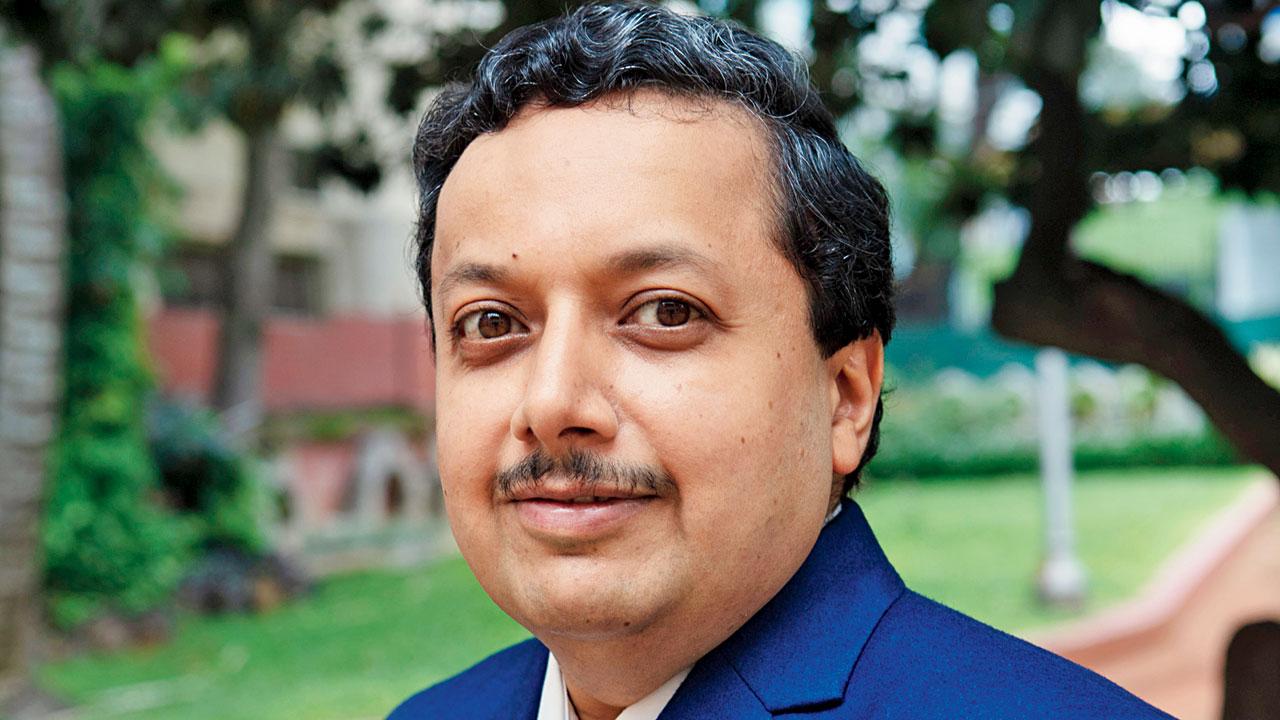A SoBo gallery hosts the launch of a new book by an art historian who explores Raja Ravi Varma’s Bombay connections

A section from the book highlights the panels of Ravi Varma’s work, Gangavataran, and Dadasaheb Phalke’s 1937 silent film of the same name
Art has long been viewed as a luxury reserved for the affluent, intellectual and elite sections of the society. Raja Ravi Varma, a renowned artist from the 19th century, stood as a testament against this notion. Today, his works grace contemporary art galleries and homes nationwide, appreciated by both enthusiasts of his works and those who might not even realise the idyllic paintings hanging on their walls trace their origins back to the renowned royalty of Travancore.
ADVERTISEMENT

Ganesh Shivaswamy, lawyer and art historian, launches the second volume of his literary series Raja Ravi Varma: An Everlasting Imprint this week. “Many purists still frown upon prints of original works and those who collect them. The Ravi Varma Press that Varma established in Girgaum in 1894, produced chromolithographs, a form of printed paintings that popularised his works exponentially. It is these endeavours that Varma undertook to propagate and democratise art, and his connections to the city, that need more attention. The book is my attempt to delve into these details,” he remarks.

Dr Pheroza Godrej
Dr Pheroza Godrej, art historian and gallerist, who will commence the book launch, echoes the sentiment “Despite being royalty, the painter’s works were palatable and understandable which appealed to a wide spectrum of the society. While he experimented with European styles, his iconography was traditionally Indian. He was keen on making his art accessible and the city has been fortunate to witness the Ravi Varma Press work in its backyard,” she shares.

An illustration of one of the earliest price lists of Varma’s works curated by printer Anant Shiwaji Desai
When asked for a sneak peek into Varma’s lesser-known city connections mentioned in the book, Shivaswamy reveals how late comic book creator Anant Pai used the artist’s depictions of Hindu mythology as a blueprint for a comic book he was conceptualising in 1967, which later went on to become Amar Chitra Katha. The cinema of then Bombay, he adds, owes it to Varma too.

Ganesh Shivaswamy
Dadasaheb Phalke was influenced by the painter’s style and borrowed from his works when it came to designing sets and choreographing scenes. “The artist once found himself in the chambers of the Bombay High Court, but contrary to popular belief, he sat amongst the Judges. I’m looking forward to people reading such anecdotes,” concludes the author.
On: Tomorrow; 6 pm to 8 pm
At: Pundole’s, Hamilton House, Ballard Estate.
Log on to: avidlearning.in
Entry: Only by RSVP
 Subscribe today by clicking the link and stay updated with the latest news!" Click here!
Subscribe today by clicking the link and stay updated with the latest news!" Click here!







